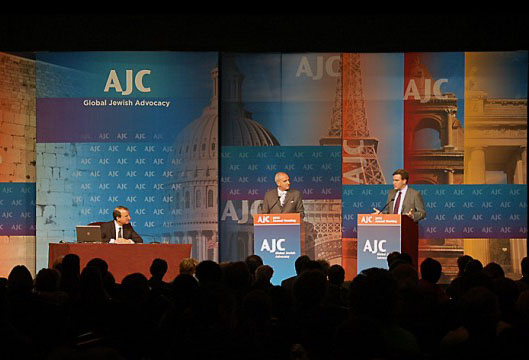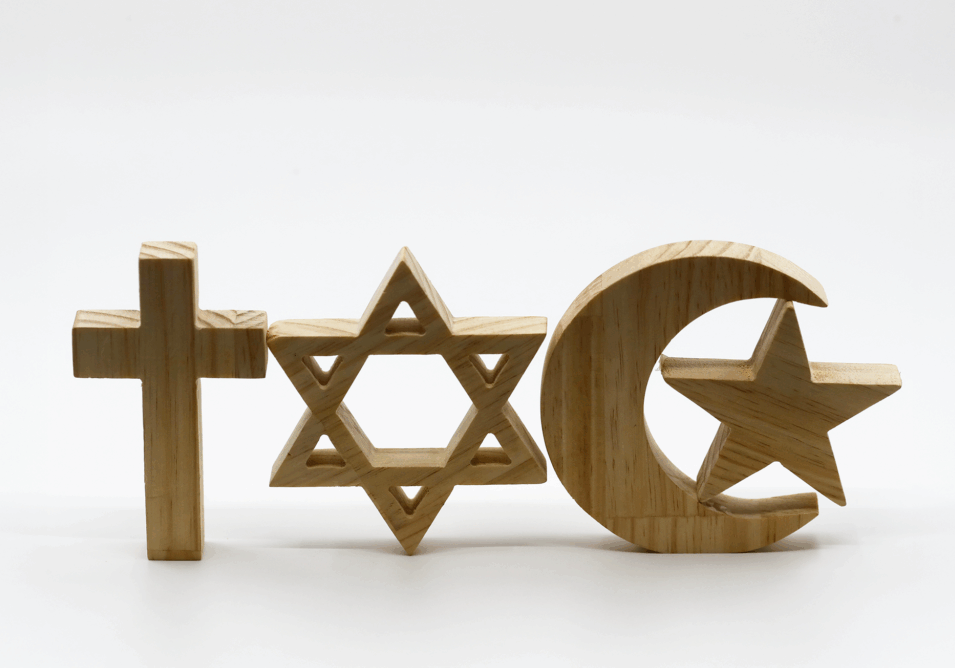Australia/Israel Review
The Last Word: A very long-term Engagement
May 29, 2012 | Jeremy Jones

Jeremy Jones
The American Jewish Committee is, by any standards, an outstanding organisation, and its May 2012 Annual Meeting and Global Forum provided testimony to this effect.
From debates on Iran featuring analysts who individually would command respect and attention due to their expertise; through sessions where a variety of serving Ministers for International Affairs shared understandings of contemporary challenges; to a hugely informative and educational debate on the strengths and weaknesses of President Obama and Mitt Romney – there was hardly a word spoken which was unnecessary or uninteresting.
The ACCESS/Re’ut 20/20 event which followed the Global Forum was also packed to overflowing with invaluable workshops and roundtable discussions.
I was privileged to lead discussions on “Green Lights and Red Lines – Potential and Limitations of Jewish-Muslim dialogue” and on “Engagement with Asia”.
It is possible some arrived at the conference with the misconception that there is little Jewish-Muslim engagement or that the interactions are of only one type or style. But thoughtful and passionate keynote speeches by two of the most amazing and accomplished professionals in the Jewish world, Jason Isaacson and Rabbi David Rosen, canvassed a spectrum interactions in a complex relationship (or rather patchwork of relationships), and would have dispelled any such illusion.
When smaller working groups discussed the issue, a catalogue of incredibly inventive initiatives, tectonic shifts in relationships, and personal growth of Jewish and Muslim individuals involved in “hard” dialogue was revealed – and was inspirational.
The unique Australian experiences were of interest for what they can teach others but also due to the factors which make them unlikely to be replicated. Meanwhile, the engagement in the Asian region was treated with both curiosity and a genuine belief that it must be a serious item on the agenda of anyone who wants to upgrade Jewish relations with Muslims.
Engagement with Muslims in the world’s largest Muslim-majority nation, Indonesia, as well as with Islamic leaders and communities in countries ranging from the Philippines and Thailand to India and Bangladesh was, nevertheless, only part of the broad picture of engagement with Asia.
I am writing this column from Bangkok, where I am a guest of the World Fellowship of Buddhists at a Conference and Interfaith Forum, where I have been reminded time and again of the lack of even the most basic knowledge of Jews and Judaism in the countries which are home to well over a third of the world’s population.
It is not unreasonable to assert that most Jewish people, even those intimately involved in interfaith dialogue and diplomacy, are generally not well-informed about Buddhist beliefs, the complex network of different groups of Buddhists or of how Buddhists see themselves and their role in world affairs. This has thus been a wonderful opportunity to learn an enormous amount about one of the world’s great faiths.
On the other side of the ledger, intelligent, educated and urbane Buddhists from countries as diverse as South Korea, China, Malaysia, Thailand, Nepal and Sri Lanka have asked a barrage of questions about the history of the Jewish people, our source texts and views on matters ranging from reincarnation to attitudes to those who are not Jewish. Many of the questions raised have been complex but all of which have been posed in genuine spirits of enquiry.
What has been apparent in some of the discussions is that the lack of engagement with Jews has provided fertile ground for the spread of misconceptions. Some of the most disturbing discussions I have had here have been with people who, using the internet as their primary resource, had been unaware The Protocols of Zion is not a work of fact and had accepted a bevy of anti-Jewish myths.
There is no logical reason for Jews to figure in the demonology of cultures and societies not marked by centuries of religious and national racism – but we cannot afford to ignore the way anti-Jewish myths become global and anti-Jewish hatred can be incited by people of immense ill-will and malicious intentions.
Tags: Indonesia, Interfaith Dialogue, Malaysia






